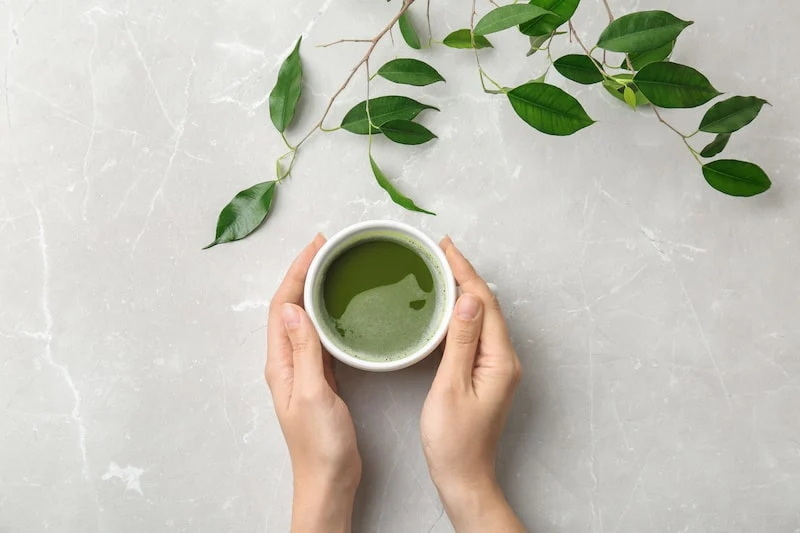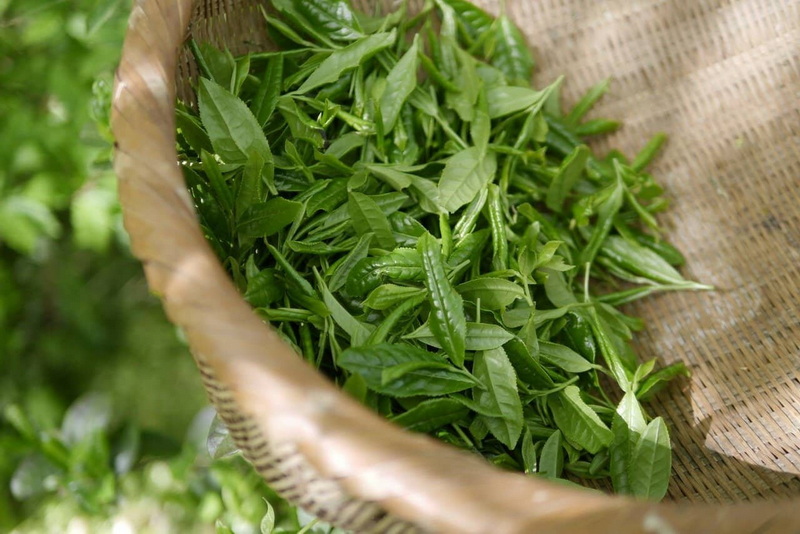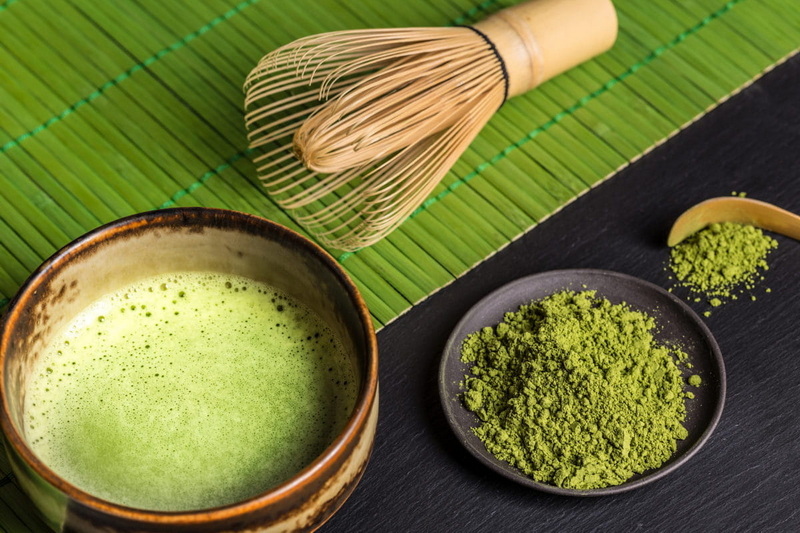Content Menu
● What is L-Theanine?
● Benefits of L-Theanine
>> Mental Health
>> Cognitive Function
>> Other Benefits
● What is Green Tea Extract?
● Benefits of Green Tea Extract
● L-Theanine vs. Green Tea Extract
● Conclusion
● FAQ About L-Theanine
>> 1. What is the recommended dosage of L-theanine?
>> 2. Are there any side effects of taking L-theanine?
>> 3. How does L-theanine affect sleep?
>> 4. Can L-theanine be taken with other medications or supplements?
>> 5. How quickly does L-theanine work?
● Citations:
L-theanine, an amino acid primarily found in green tea leaves, is associated with several health benefits, including improvements in mood, cognition, and a reduction of stress and anxiety-like symptoms[1][7]. Green tea extracts also possess qualities that may improve health; however, L-theanine in its pure form may offer more consistent benefits[3].

What is L-Theanine?
L-theanine is a unique amino acid found almost exclusively in tea plants Camellia sinensis[6]. It comprises 1 to 2% of the dry weight of tea leaves[6]. It is a non-essential amino acid, meaning our bodies can produce it[7]. In dietary supplements, highly purified forms of L-theanine are produced via a fermentation process that mimics the natural process in green tea leaves[6]. Theanine can stimulate and relax you, help with your blood pressure, or fight illness[7].
Benefits of L-Theanine
L-theanine exhibits a variety of health benefits, such as antioxidant, anti-inflammatory, neuroprotective, anticancer, metabolic regulatory, cardiovascular protective, liver and kidney protective, immune regulatory, as well as urogenital and intestinal protective effects[5].
Mental Health
L-theanine shows excellent therapeutic effects on mental health, such as depression and stress, and can improve emotional and cognitive function[5]. Studies suggest that 200-400 mg/day of L-theanine may assist in reducing stress and anxiety in people exposed to stressful conditions[1]. L-theanine has the potential to promote mental health in the general population with stress-related ailments and cognitive impairments[2].
After L-theanine administration, scores for Self-rating Depression Scale, State-Trait Anxiety Inventory-trait, and Pittsburgh Sleep Quality Index (PSQI) decreased[2]. The PSQI subscale scores for sleep latency, sleep disturbance, and use of sleep medication also reduced after L-theanine administration, compared to the placebo administration[2].
Cognitive Function
L-theanine may contribute to improving attention, thus enhancing working memory and executive functions[8]. Verbal fluency and executive function scores improved after L-theanine administration[2]. The combination of green tea and l-theanine significantly improved cognitive functions by increasing memory and attention in subjects with mild cognitive impairment[4].
Other Benefits
L-theanine has strong antioxidant activity, which can be associated with the regulation of the expression and activities of antioxidant-related enzymes[5]. L-theanine might have protective effects on orofacial dyskinesia due to its formidable antioxidant properties[5]. L-theanine treatment reduced the levels of lipid peroxide and nitric oxide, improving the antioxidant capacity[5].

What is Green Tea Extract?
Green tea extract is a concentrated form of green tea leaves[3]. Green tea extract-based products and their consumption in combination with protein supplements have safety risks[3]. Overconsumption of the green tea extract Garcinia cambogia has been reported to cause pattern liver injury[3]. When consumed in excessive doses, these green tea extracts' compounds have the potential to cause significant health problems[3].
Benefits of Green Tea Extract
Green tea contains L-theanine, so green tea extract may provide similar benefits[6]. The combination of green tea and l-theanine improved cognitive functions by increasing memory and attention in subjects with mild cognitive impairment[4].
L-Theanine vs. Green Tea Extract
Relatively recent health concerns about the use of green tea extracts support the appropriate use of L-theanine in its pure form rather than alongside other compounds that are commonly found in green tea and its extracts[3]. Processes utilized in the preparation of functional food products (i.e. high temperatures and changes in pH) can reduce the functionality of L-theanine, while its combination with some ingredients (such as caffeine and other amino acids) may interfere with its absorption[3].
Here is a comparison of L-Theanine and Green Tea Extract:
| Feature | L-Theanine | Green Tea Extract |
| Source | Found almost exclusively in tea plants (Camellia sinensis)[6] | Concentrated form of green tea leaves [3] |
| Benefits | Improves mood, cognition, and reduces stress and anxiety-like symptoms [1].Strong antioxidant and anti-inflammatory activity[5]. | May provide similar benefits to L-theanine, including improved cognitive function[4]. |
| Concerns | None known[3] | Potential safety risks when combined with protein supplements[3]. Overconsumption may lead to liver injury[3]. |
| Considerations | Processes like high temperatures and changes in pH can reduce functionality. Combination with caffeine and other amino acids may interfere with absorption[3] | Contains other compounds that may cause health problems if consumed in excessive doses[3]. |
| Concentration | Highly purified forms available as dietary supplements[6] | Varies depending on the extraction method[10] |
| Primary Use | Stress and anxiety reduction, cognitive enhancement[18] | Cognitive function improvement[4] |
Conclusion
Both green tea extract and L-theanine offer potential health benefits. L-theanine in its pure form may provide more consistent and targeted effects, particularly for stress reduction, anxiety relief, and cognitive enhancement[1][2]. Green tea extract may also offer cognitive benefits, but it comes with potential safety risks and may have reduced functionality due to processing and interactions with other compounds[3][4].

FAQ About L-Theanine
1. What is the recommended dosage of L-theanine?
Studies suggest that a supplementation of 200-400 mg/day of L-theanine may assist in the reduction of stress and anxiety in people exposed to stressful conditions[1]. However, it is always best to consult with a healthcare professional before starting any new supplement.
2. Are there any side effects of taking L-theanine?
To our knowledge, there are no adverse effects related to excessive intake of L-theanine[3]. Food Standards Australia and New Zealand recommend L-theanine as a substance that can be added to herbal infusion tea bag/sachet (i.e. powder) at up to 2 g/100 g of total natural and added substance[3].
3. How does L-theanine affect sleep?
L-theanine has been shown to improve sleep quality[2]. It can reduce sleep latency, sleep disturbances, and the use of sleep medication[2].
4. Can L-theanine be taken with other medications or supplements?
It is essential to consult with a healthcare professional before taking L-theanine with other medications or supplements[1]. They can provide personalized advice based on your health status and potential interactions.
5. How quickly does L-theanine work?
The anti-stress effects of L-theanine (200 mg/day) have been observed following once- and twice-daily administration[2]. The attention-improving effects have been observed in response to treatment of 100 mg/day on four separate days and 200 mg/day single administration[2].
Citations:
[1] https://pubmed.ncbi.nlm.nih.gov/31758301/
[2] https://pmc.ncbi.nlm.nih.gov/articles/PMC6836118/
[3] https://www.xiahepublishing.com/2472-0712/ERHM-2020-00048
[4] https://www.naturalmedicinejournal.com/journal/green-tea-and-l-theanine-mild-cognitive-impairment
[5] https://www.frontiersin.org/journals/nutrition/articles/10.3389/fnut.2022.853846/full
[6] https://cn.iherb.com/blog/a-quick-guide-to-l-theanine/389
[7] https://wearefeel.com/blogs/learn/what-is-ltheanine
[8] https://pmc.ncbi.nlm.nih.gov/articles/PMC8080935/
[9] https://pmc.ncbi.nlm.nih.gov/articles/PMC9261829/
[10] https://onlinelibrary.wiley.com/doi/abs/10.1002/jsf2.175






























